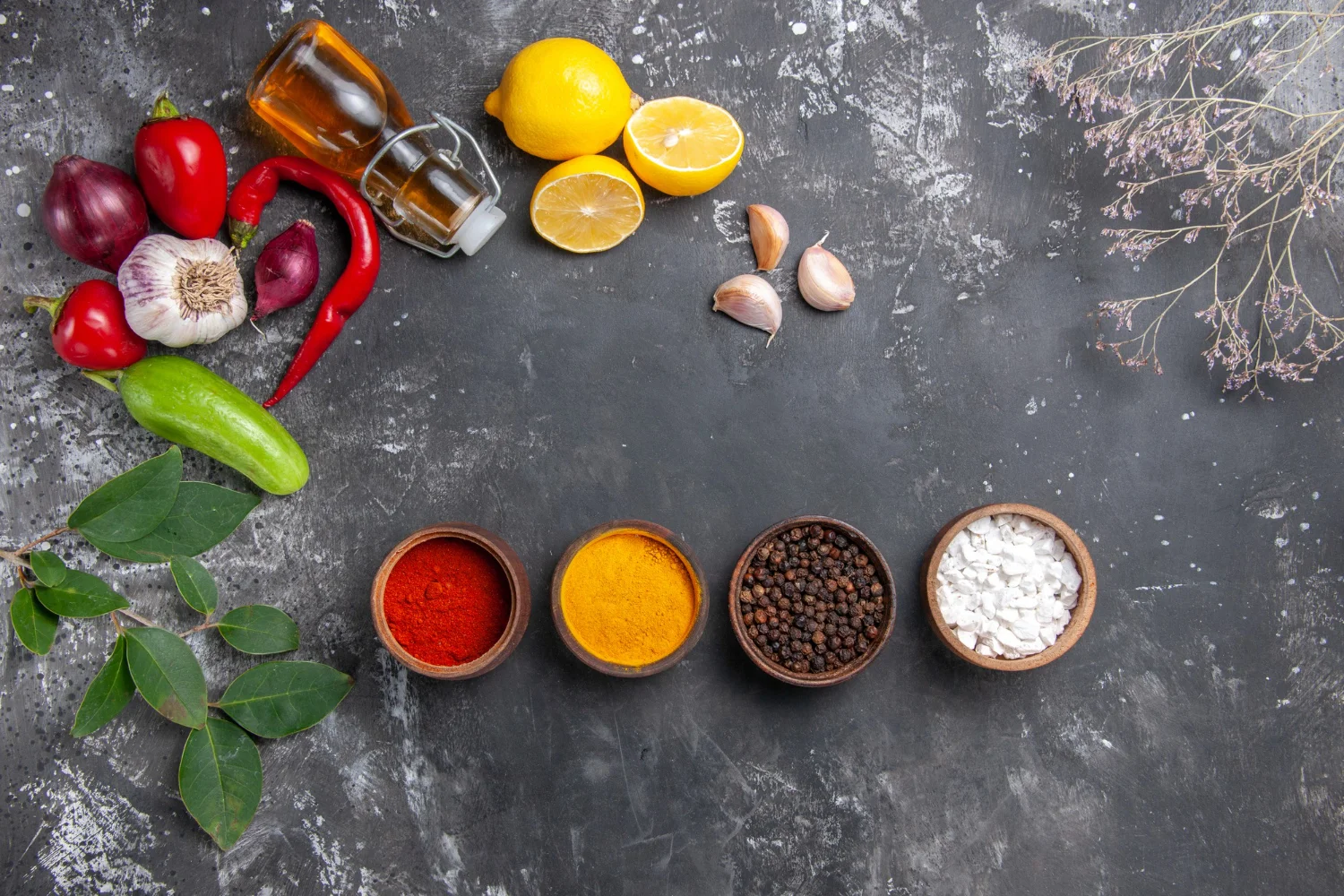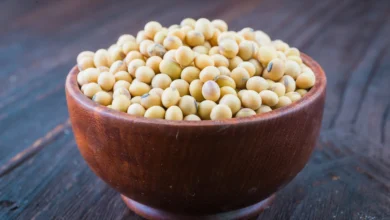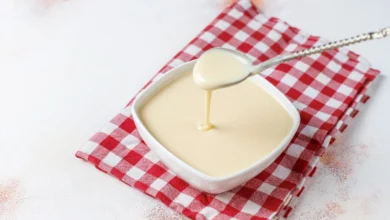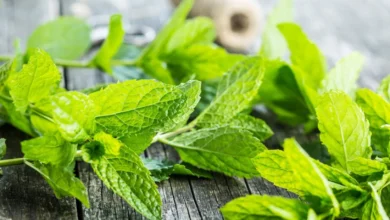Lemon Pepper Substitutes – Out of Lemon Pepper? Try This!
If you love the bright flavor of lemon pepper seasoning but find yourself in a pinch, don’t despair! There are many excellent substitutes that can save the day and still bring that citrus-forward spice to your dish.
Contents
- Lemon Pepper Substitutes
- Lemon Pepper Chicken Without Lemon Pepper Seasoning
- Making the Most of What You Have
- Finding Your Perfect Substitute
- Can I Make My Own Lemon Pepper Seasoning?
- Homemade Lemon Pepper Recipe
- Dishes That Pair Well With Lemon Pepper
- Frequently Asked Questions
- What Is Lemon Pepper Seasoning Made Of?
- What Is A Substitute For Lemon Pepper Spice?
- What Is Lemon Pepper Good For?
- Can You Use Lemon Instead Of Lemon Pepper?
- Does Lemon Pepper Have Salt?
- Does Lemon Pepper Seasoning Go Bad?
- Is Lemon Pepper Seasoning Keto Friendly?
- What does lemon pepper do to food?
- What is lemon pepper sauce made of?
- Is lemon pepper worth it?
Lemon Pepper Substitutes
Want to recreate the flavors of lemon pepper chicken without lemon pepper seasoning? It’s surprisingly easy!
Lemon Pepper Chicken Without Lemon Pepper Seasoning
Craving the flavors of lemon pepper chicken but don’t have the seasoning blend on hand? No problem! You can easily achieve that citrusy, peppery flavor using simple ingredients you likely have in your pantry. Here are the ways:
- Fresh Lemon and Pepper: Combine freshly grated lemon zest and cracked black pepper for the most authentic flavor.
- Lime and Black Pepper: Lime adds a similar, slightly tangier citrus flavor for a unique take on the classic.
- Lemon Thyme: Add a herby twist to your chicken with fresh lemon thyme and black pepper.
Making the Most of What You Have
Sometimes, it’s inconvenient to run out to the store for a particular spice mix, or you might find that purchasing a large container isn’t the best option for your needs. The good news is that with a touch of creativity and some pantry staples, you can still achieve a similar flavor profile.
The Power of Fresh Citrus: Think beyond just lemon! A bit of freshly grated lime zest brings an equally vibrant punch. Its zesty tang can stand in for lemon pepper beautifully, while offering a slightly different flavor note.
Spices and Seasonings to the Rescue: Don’t underestimate the power of spices you likely have on hand. A simple mix of your favorite pepper varieties along with a touch of garlic powder, onion powder, or a pre-made Italian seasoning mix can create a surprisingly satisfying substitute.
Keep it Fresh: If you frequently use lemon pepper in your recipes, consider storing a larger batch in mason jars. This helps keep the flavors bright and ensures you don’t fear running out anytime soon.
Endless Possibilities: Lemon pepper’s zing isn’t limited to chicken and seafood! Try it on everything from quick and easy weeknight wings to a slow cooker honey-glazed meat dish. The possibilities for mouthwatering flavorful combinations are endless!
Finding Your Perfect Substitute
The best lemon pepper substitute will depend on your preference and what you have on hand. With a bit of experimentation, you’re sure to find several go-to alternatives that perfectly suit your dish. Don’t be afraid to get creative! Sometimes the most delicious flavor combinations are the ones you discover by luck.
1. Fresh Lemon Zest and Black Pepper
Nothing beats the vibrant flavor of fresh lemon zest and freshly cracked black pepper when it comes to lemon pepper substitutes. This classic combination is likely something everyone has on hand. For the best substitute, look through your produce and see if you have a lemon to spare! Simply zest the lemon, using a grater or a zester, and then combine it with some freshly cracked black pepper. Add this mix prior to cooking or sprinkle it directly on your dish.
2. Sumac and Black Pepper
Sumac, a popular spice in the Middle East, is rapidly gaining recognition around the world. Its deep purple color and warm citrus flavor make it an unbeatable lemon pepper alternative! If you’re in need of a substitute and enjoy trying new flavors, sumac is a go-to. It works wonders in various dishes, from simple grilled beef and chicken to kefta kebabs, fried vegetables with feta, and vibrant salad dressings. Plus, it pairs beautifully with seafood–consider mixing it into vinaigrette for oysters. It’s also great in marinades, dressings, dips, and even soups!
4. Lime and Black Pepper
This mixture boasts a flavor profile quite similar to lemon pepper. Luckily, limes can often be substituted for lemons with ease. Grate some lime zest or squeeze in a bit of fresh lime juice for a delicious citrusy twist in your salad dressings, marinades, and more. If you prefer a slightly more acidic tang, lime is the way to go!
5. Lemon Thyme
Lemon thyme and black pepper offer a fantastic alternative that brings a fresh, zingy spice to any recipe. This natural herb variation provides a subtle citrus note and a delightful aroma. You might be growing lemon thyme in your garden or can easily find it fresh in most grocery stores. It’s amazing for both its citrusy and herby scent and flavor. If you have lemon thyme, it’s definitely worth a try! Sprinkle it in salads, add it to marinades, blend it into a dressing, or infuse a sauce – the possibilities are endless.
6. Lemon Juice
Fresh lemon juice offers a bright, flavorful alternative that comes close to the profile of the real spice mixture. If you prefer a tangy zestiness without the actual zest, lemon juice is perfect for salad dressings, sauces, and marinades. Simply mix in a little lemon juice with some black pepper for a more authentic peppery kick that mimics the traditional flavor profile. Since lemon juice concentrate is stronger, use about half the amount to avoid overpowering your dish. When combined with pepper, lemon juice is a powerhouse you can use in all the right ways.
7. Lemon Juice Powder
Lemon juice powder provides a concentrated, shelf-stable, and versatile option to replace your lemon pepper spice blend. It works wonderfully in drinks, smoothies, dressings, and marinades. When in a pinch, just keep some lemon powder on hand and add it to anything! For a tangy salad dressing, mix lemon powder with water, sugar, and a touch of olive oil for a quick and easy lemonade base. Or, sprinkle some on your salad along with fresh, cracked black pepper to recreate that beloved lemon pepper flavor.
8. Dried Herbs
If you’re really in a pinch and have no citrus flavored options at hand, turn to dried herbs depending on your specific recipe. For instance, on chicken, a sprinkle of Italian seasoning can create a good herby flavor to substitute for lemon pepper. Other herb options include garlic powder, onion powder, or coriander. Choose a mix of your favorites and add in a little black pepper for that signature peppery kick, and your dish will still come out great!
9. Lemon Curry Powder
Lemon curry powder is a powerhouse spice packing a warm citrus flavor along with sweet and peppery notes. It often contains turmeric, lending a vibrant yellow color. Lemon curry seasoning is quite mild, making it perfect for veggies, chicken, or seafood. Toss some air fryer shrimp with lemon curry for a recipe that pops with flavor! To give lemon curry powder more of a spotlight, pair it with simple sides like rice, pasta, beans, or quinoa.
Can I Make My Own Lemon Pepper Seasoning?
Yes, making your own lemon pepper blend is surprisingly easy and a great cost-effective alternative to buying pre-made seasonings. The best part is that you have total control over the ingredients and can make it exactly to your liking.
To create your own, start with dried lemon zest (you can easily dry your own lemon peels) and ground black pepper as the base. Feel free to add other complementary ingredients like onion powder, garlic powder, or even black sesame seeds for a visually interesting mix. Experiment with different flavor combinations until you find your perfect blend!
Once you’ve mixed up your seasoning, store it in an airtight container for maximum freshness. Feel free to adjust the proportions to suit your taste preferences as you go.
Salt-Free Variation
If you’re looking for a salt-free lemon pepper seasoning, it’s easy to make your own! Simply omit the salt from the basic recipe, or look for commercial blends that clearly specify “salt-free” on their labeling. This gives you complete control over the flavor and sodium content.
Homemade Lemon Pepper Recipe
Homemade Lemon Pepper Recipe
This simple recipe for homemade lemon pepper seasoning only requires a few key ingredients:
- Freshly ground black peppercorns: These provide the base spice and the best flavor.
- Lemon zest: This adds the signature bright, citrusy note.
- Lemons: Fresh lemons are essential to obtain the zest for the seasoning.
- Salt: Brings depth and enhances the overall flavor profile.
How to Make Lemon Pepper
- Preheat: Start by preheating your oven to 170 °F (76 °C) (or the lowest setting available).
- Prepare: Cover a baking sheet with parchment paper.
- Spread Zest: After zesting your lemons, spread the lemon zest in a thin, even layer on the prepared baking sheet.
- Bake: Place the baking sheet in the preheated oven and bake for 10-15 minutes, or until the lemon zest is completely dry and crisp.
- Cool: Remove the baking sheet from the oven and allow the zest to cool completely.
- Grind: Once cooled, place the dried lemon zest in a spice grinder, mortar and pestle, or even a coffee grinder. Grind it into a fine powder.
- Combine: Transfer the ground lemon zest to a small bowl. Combine the black pepper and salt with the other ingredients.
- Store: Place your homemade lemon pepper seasoning in an airtight container and store it in a cool, dry place.
Dishes That Pair Well With Lemon Pepper
Seafood
Lemon and seafood are a classic pairing. The bright, fresh citrus note adds a punch of flavor and complements the inherent freshness of your seafood dish. It’s delicious in a seafood boil, on Mediterranean-style baked fish with olives and artichokes, or simply sprinkled on any easy fish recipe. Lemon pepper is an easy spice to add and become a go-to choice for your seafood creations.
Chicken
Lemon pepper can work wonders as a rub or marinade for your favorite chicken dishes. If you find yourself ordering lemon pepper chicken dishes when eating out, try recreating those citrus-forward flavors at home! It’s packed with freshness and complements chicken beautifully.
Veggies
A light sprinkling of lemon pepper can transform simple roasted vegetables into a vibrant side dish – try it on oven roasted spiced vegetables for an extra flavor boost! Toss your favorite vegetables in olive oil, sprinkle on the seasoning, and roast until tender. The lemon pepper complements the sweetness of the roasted vegetables beautifully. Get creative with asparagus, cauliflower, broccoli, air-fried vegetables, or even roasted parsnips for a delicious, unique recipe.
Salad Dressing
Lemon pepper is the perfect spice to give a salad dressing an added pop! The peppery, citrus flavor works especially well in simple vinaigrettes and even creamy variations like a lemon pepper take on Italian dressing. Sprinkle some over a bed of lettuce, spinach, arugula, or a garden mix.
Turkey
If you sometimes find turkey bland compared to chicken, lemon pepper can add a fresh, bright flavor to your dishes. Try it on a spicy grilled turkey breast with a side salad, or pair it with roasted veggies for a simple yet satisfying, full meal.
Dips
Mix lemon pepper into yogurt or mayo to create a zingy dip you can enjoy with all kinds of food – from roasted brussels sprouts, broccoli, and cauliflower to raw veggies. The citrus-forward flavor of lemon pepper is perfect for pairing with your favorite dippers, like carrots, sugar snap peas, celery, and more. It’s an easy go-to for dipping that will make your snacks exciting!
Final Words
Lemon pepper seasoning adds a delightful zest and peppery kick to many dishes, but it shouldn’t limit your culinary creativity. Whether you’ve run out, want to control the salt content, or simply enjoy exploring new flavors, there are many fantastic substitutes at your disposal. From the vibrant tang of fresh citrus to the warmth of lemon curry, don’t be afraid to experiment! The joy of cooking lies in discovering your own preferences and delicious combinations, and sometimes, those happy discoveries come from the simplest of substitutions.
______________________________________
Frequently Asked Questions
What Is Lemon Pepper Seasoning Made Of?
Traditional lemon pepper seasoning is made of a few key ingredients: dried lemon zest, black pepper, and salt. Many recipes will also add complementary spices like garlic powder or onion powder. For the most straight-forward lemon pepper flavor, stick to the basics. If you are buying pre-made lemon pepper blends, be sure to check the label as some mixes may contain additional or unwanted ingredients.
What Is A Substitute For Lemon Pepper Spice?
Freshly grated lemon zest or a squeeze of lemon juice, combined with a sprinkle of black pepper, are the simplest substitutes for lemon pepper spice. Other options are lime (for a slightly different flavor), lemon thyme, or lemon curry (for a warmer, deeper citrus note).
What Is Lemon Pepper Good For?
Lemon pepper seasoning is good on various meat, seafood, and vegetables. Try adding it to a salad dressing for a peppery citrus flavor, or on your roasted veggies as a marinade or to dry rub and roast. The great thing about lemon pepper is that it’s versatile enough to season practically any food and can let your dish be the star of the show.
Can You Use Lemon Instead Of Lemon Pepper?
Yes, you can use fresh lemon zest and juice to create a substitute for lemon pepper seasoning. Just sprinkle with some freshly cracked black pepper to achieve the proper peppery kick and balance out the zingy citrus.
Does Lemon Pepper Have Salt?
Most store-bought lemon pepper seasoning blends contain salt. If you’re making it at home, you can adjust or reduce the salt content to control your sodium intake. Alternatively, when buying store-bought mixes, look for options labeled “low sodium.”
Does Lemon Pepper Seasoning Go Bad?
While lemon pepper seasoning won’t spoil, it can lose its potency over time. It’s generally best when used within six months to two years. For the best flavor, store it in a cool, dry place away from direct sunlight.
Is Lemon Pepper Seasoning Keto Friendly?
Homemade lemon pepper seasoning is keto-friendly as it generally contains no added sugar or preservatives and is low in carbs.
What does lemon pepper do to food?
Lemon pepper seasoning enhances savory dishes by adding layers of acidity, umami, a touch of salt, and a hint of warmth. These are the building blocks that add dimension to your everyday savory cooking.
What is lemon pepper sauce made of?
Lemon pepper sauce typically starts with a base of butter, lemon pepper seasoning, lemon juice and zest, and may also include honey or hot sauce. It’s often used to toss with air-fried chicken wings and takes less than five minutes to whip up – the perfect sauce for a quick meal!
Is lemon pepper worth it?
While lemon pepper adds a perfectly acceptable, easily accessible flavor, ultimately, its personality depends on the quality of your ingredients. A sprinkle over steamed vegetables or dusted chicken thighs before throwing them in the oven can elevate a quick dinner; however, it’s unlikely to be a show-stopping culinary revelation.





